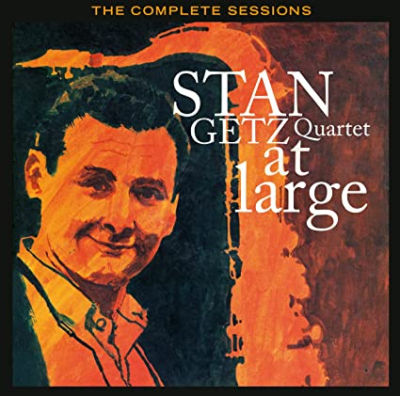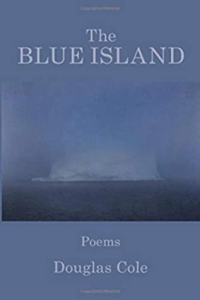.
.
Trading Fours with Douglas Cole is an occasional series of the writer’s poetic interpretations of jazz recordings and film
.
.
___
.
.
.

.
“Convergence” rises from listening to the Stan Getz Quartet at Large
.
.
___
.
.
Convergence
Inflation, market manipulation, plausible deniability,
currency, recession, depression, concentrated wealth,
gentrification, fraud, artificial intelligence,
crypto mining, speculation, bear market, bull market,
exchange rate, price gouge, monopoly, antitrust,
liquidity, earnings, savings, investments, stock and trade,
Federal Reserve, percentage increase, revenue, interest rate,
high yield, money market, balloon payment, mortgage,
tax, debt, income stream, durable good, insurance,
claim adjustment, temp work, four oh one K, Social Security,
devalue, asset, liability, account, accounting, accountant,
the invisible hand—we all live on bankers’ hours,
futures, pork barrel, earmark, tender,
withholdings, payment, planned obsolescence.
In the sense the guy who dresses up as a ship captain
and holds a sign saying “Rally up,” or
the other bespectacled fan waving his little country’s flag—
they are the most basic form of theater there is:
they have created a character,
they have dressed the character in costume,
and they have put the character on the stage of the world—
any dialogue or plot, they leave up to the moment;
they’re writing in the process of presenting the play.
It’s not prewritten. It’s enacted in creation—
an immediate, improvised form of theater.
We are bound by our condition to see only the present.
The past becomes a shady memory.
Imagine seeing equally the past and the present,
the future for that matter. But in the same way
we cannot see beyond a near horizon,
time is a horizon, leaving much we don’t know,
even as the lens of the present continues
and we get better at documenting and preserving the past,
so much is unperceived—and now the black hole,
the “gentle giant” one astronomer calls it, followed by
and “Einstein was right about gravity…”
The event horizon, that point of no return
and the mystery of that dense inner world.
I see that collapsing inward no-light-can-escape
black hole as an inverse, a reciprocal of stars,
suns exploding outward with all that light and energy
the complete opposite of a black hole,
so much so they must be connected.
I suspect our condition limits our ability to see it,
but the idea is not new: the Zen Buddha’s
talk of the union of opposites,
the master Go player keeps one black stone
in the white pile and one white stone in the black,
yin and yang holding the opposite at its center,
a sun, a black hole sun.
Imagine it as if you’re in a bar,
and the clarity or confusion you may experience
is part of the atmosphere.
Still, it’s intriguing and you want to hear it!
Or, imagine it around a fire in the dark night,
the stories take on a life of their own,
as if you invited a spirit into the room.
The mist over the far hills and the mountains,
the people out there over the calm grey sea,
our loved ones, the ones from before
diving across the sky in the skins of cloud.
Then I catch that scent that sends me
back to Berkeley walking home from school
through a vacant lot, no idea what was ever there,
just a concrete slab now, cracks letting up grass lines,
dry paper, bottles, cigarette butts, scraps,
piece of a shirt blown into the chain link fence.
Another shot cruise through Laurelhurst,
we’d get out to the edge and it just dropped off
into black-green chunks of forest ravines and creeks,
like a million years of time sinking down under
those blue grey skies, you are what you see.
Woman holding a bread bag as if it were a baby.
Imagine having a thought so big, so clear,
you had to say it out loud even here, even though
people look at you as if you’re crazy.
It’s like driving home,
the light just going down,
the long black road through the trees.
.
Listen to the poet read “Convergence”
.
.
Listen to the 1960 recording of “Amour,” from Stan Getz at Large, with Getz (saxophone), Jan Johansson (piano), Dan Jordan (bass), and William Schiopffe (drums) [Universal Music Group]
.
.
.
___
.
.
photo by Jenn Merritt

.
Douglas Cole has published six collections of poetry and The White Field, winner of the American Fiction Award. His work has appeared in several anthologies as well as journals such as The Chicago Quarterly Review, Poetry International, The Galway Review, Bitter Oleander, Chiron, Louisiana Literature, Slipstream, as well Spanish translations of work (translated by Maria Del Castillo Sucerquia) in La Cabra Montes. He is a regular contributor to Mythaixs, an online journal, where in addition to his fiction and essays, his interviews with notable writers, artists and musicians such as Daniel Wallace (Big Fish), Darcy Steinke (Suicide Blond, Flash Count Diary) and Tim Reynolds (T3 and The Dave Matthews Band) have been popular contributions. He has been nominated twice for a Pushcart and Best of the Net and received the Leslie Hunt Memorial Prize in Poetry. He lives and teaches in Seattle, Washington. Click here to visit his website..
.
.
The poet’s collection, The Blue Island
.
.
___
.
.
Click here to learn how to submit your poetry
Click here to subscribe to the Jerry Jazz Musician newsletter
.
.
.















































